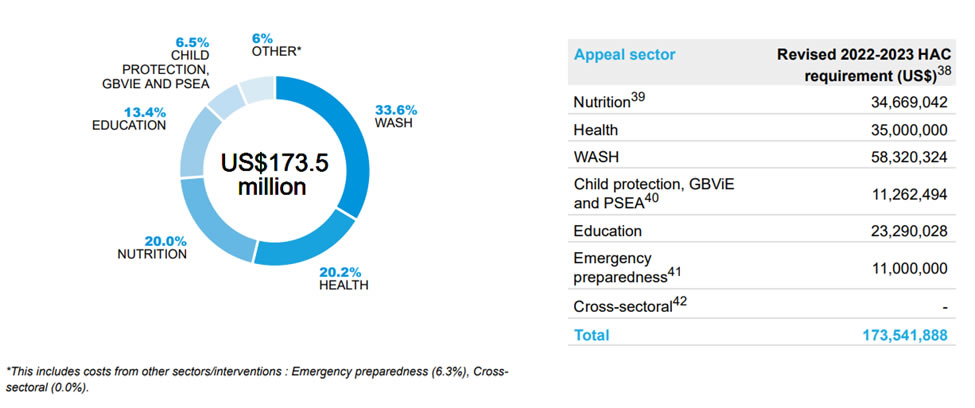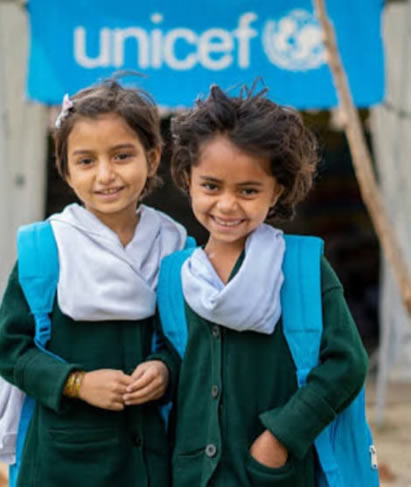UNICEF Pakistan “Champion of Fight Against Child Marriage”
By: Khizer Klasra

In the big picture of helping people around the world, there’s one organization that shines as a bright light of hope for children everywhere. UNICEF, the United Nations International Children’s Emergency Fund, has been dedicated to ensuring the well-being and rights of every child since its establishment in 1946. With a presence in over 190 countries and territories, UNICEF tirelessly strives to provide children with the essentials they need to not only survive but to thrive and reach their full potential.
A Legacy in Pakistan and Beyond:
UNICEF’s journey in Pakistan began in 1948, and for over 75 years, the organization has been a steadfast advocate for the rights and well-being of children and women. Working to address inequities in education, health, nutrition, protection, water, sanitation, and hygiene, UNICEF has been instrumental in bringing basic services to those who need them the most.

Championing the Rights of Girls in Pakistan:
However, the challenges in South Asia are complex, as the region carries the highest burden of child marriage globally. Recent estimates released by UNICEF reveal a staggering figure of approximately 290 million child brides in South Asia, representing 45% of all child marriages worldwide. It is a tragic indication of the struggle rights activists and policymakers face in protecting children. About 18% of girls in Pakistan are still married as children, numbering 1.9 million. That means one in six girls in Pakistan are married at an early age, even though the legal minimum age for marriage in the country is 18 years. However, the rate of child marriage in Pakistan is slightly better than the world average of 19%, especially in compared with India, Bangladesh, Afghanistan, Nepal, and Bhutan, which lag far behind.

Impact of Child Marriage on Girls:
Child marriages, exacerbated by economic pressures intensified since Covid-19, disproportionately affect girls, who often find themselves married off, sometimes to much older men, due to economic stress or senseless customs. In Pakistan, the legal age for marriage is only 16 in most regions, leading to a shameful record in the fight against child marriage.
The Negative Ripple Effect:
Child marriages have far-reaching consequences, negatively impacting the health, education, and well-being of girls. Complications during childbirth and higher maternal mortality rates are prevalent among girls married off at a young age. Furthermore, many are deprived of education, perpetuating a cruel tradition where young brides are the norm. Forced marriages deny children a say in significant life decisions, perpetuating this obnoxious trend.
UNICEF’s Financial Commitment:
UNICEF recognizes the urgency of addressing these challenges and has outlined a revised funding requirement of US$173.5 million for the period 2022-23. This funding is crucial to respond to the critical humanitarian needs of millions of children in Pakistan. The breakdown of the funding requirement by sector is as follows:
Nutrition: $34,669,042
Health: $35,000,000
WASH (Water, Sanitation, and Hygiene): $58,320,324
Child Protection, GBViE, and PSEA: $11,262,494
Education: $23,290,028
Emergency Preparedness: $11,000,000
Total: $173,541,888

The Urgent Call to Action:
Child marriage is not just a social issue; it is a serious human rights violation that requires urgent attention from policymakers in South Asia. While efforts are being made to address this issue, the prevalence of child marriage persists, threatening the future of millions of girls.

Conclusion:
As UNICEF continues its tireless efforts to advocate for children’s rights globally, the fight against child marriage remains a critical battleground. Through partnerships, advocacy, and targeted interventions, UNICEF seeks to empower the future, ensuring that every child, especially girls in South Asia, can break free from the chains of child marriage and reach their full potential. The urgent call to action echoes: South Asia’s policymakers must recognize the pervasive nature of this practice and act swiftly before the future of millions more girls is destroyed.


